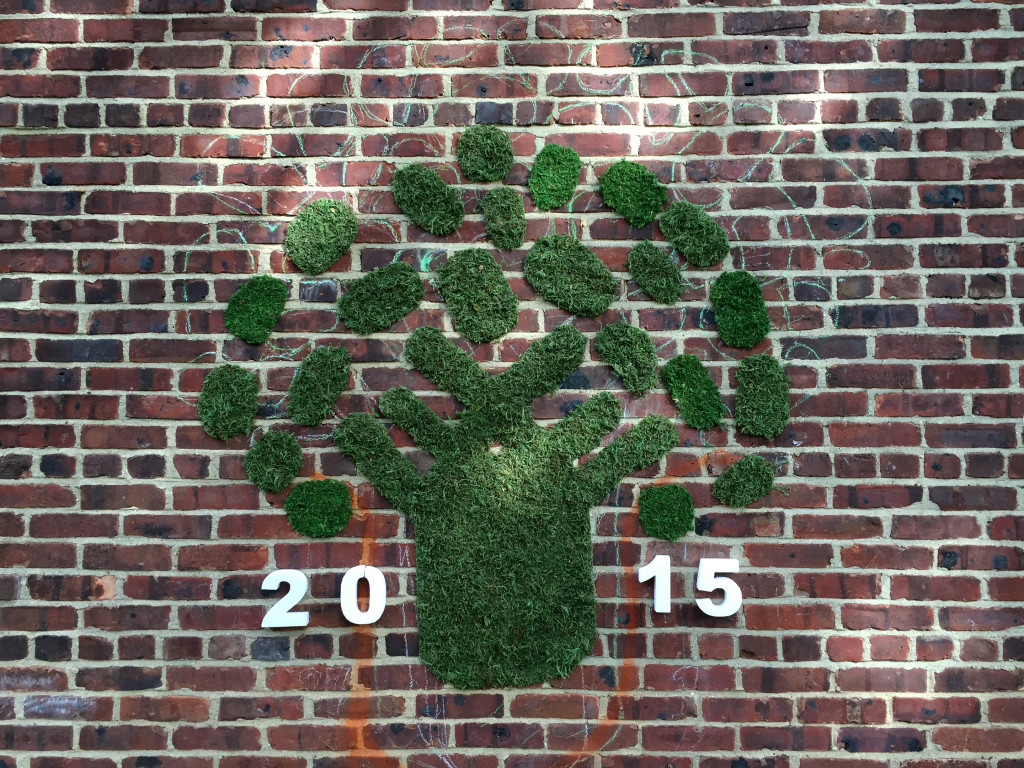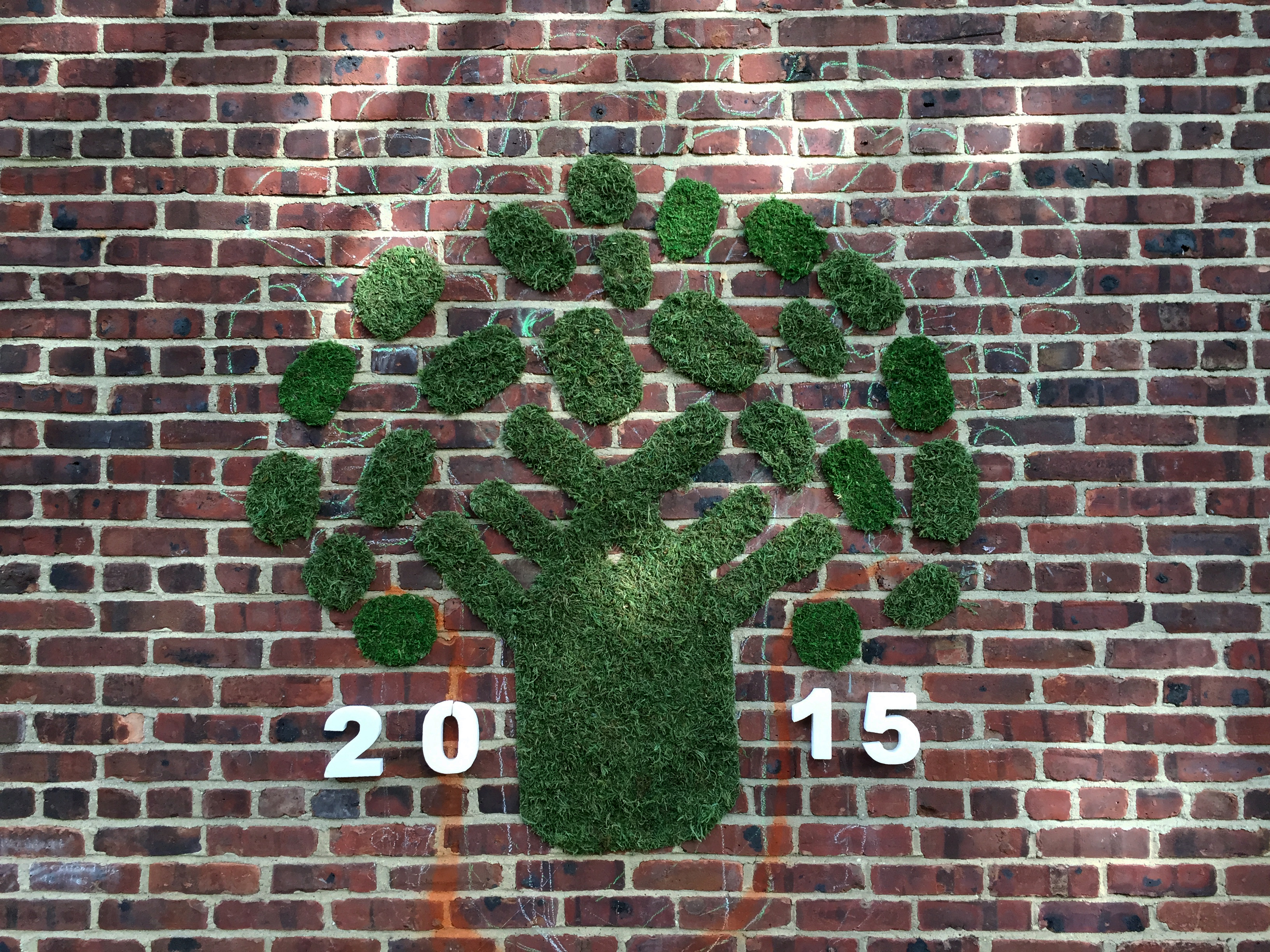
Class of 2015 tree designed by Gabe Fields (VI) that is pasted onto the building at the bottom of the Senior Grass
The Fieldston campus encompasses 18 acres. That is 784,080 square feet. The purpose of this article is to defend about 1500 of those square feet (about 0.2 percent of the campus) for the people who have been at Fieldston the longest.
The senior grass has been a tradition at Fieldston for nearly fifty years now. Several students whose parents attended remember the tradition fondly. As many have pointed out, the simple fact that something is a tradition does not make that thing inherently good, but what traditions are, though, is inherently popular. The question of whether or not the senior grass has negative consequences was put to a roundtable on February 3.
I attended the round table for upperclassmen, and I received a comprehensive recap of the round table for the Middle School students. The consensus is that, in fact, the senior grass is incredibly popular and there are no actual negative consequences. I do not claim to know what it is like to be a Middle School student today, but to be fair; nearly every senior was in the middle school at some point. From what I’ve heard, support amongst the younger members of our community was nearly unanimous, with hypothetical concerns, but no one actually brought forth any example of bullying, or shared any negative experience with a senior. At the round table I attended, the support was equally wide.
This information leads me to believe that this is a wholly manufactured conflict. The concern I’ve heard is from teachers, not students, about what the senior grass might cause, not has caused. At the round table, Ms. Johnson, the Junior Dean, expressed her concern with others calling this conversation “ridiculous.” No one was then willing to call the conversation ridiculous after that, but I am now. This conversation is ridiculous, because it is born out of hypothetical problems rather than actual ones. It is ridiculous because, in a school with clear issues (lack of gender / racial diversity in student government, lack of minorities in upper level courses, inherent economic and racial biases, etc…), we spend time looking at a plot of land.
Beyond that, this school may in fact have a problem with how students in the middle school are treated by those students older than them. But let’s have that conversation. Let’s not pretend that the senior grass is a symptom or a cause of that issue. The failure of a proposed middle school mentorship program highlights the fact that while administrators are willing to express concerns, they are unable or unwilling to create the needed dialogues. Instead, we talk about the senior grass.
The senior grass is a popular, good tradition with, and I need to be perfectly unambiguous here, no negative consequences. There is the possibility that the senior grass reinforces a negative hierarchical structure, but the reality is that it doesn’t. This conversation is forcing us to consider solutions to a problem that doesn’t exist.
Unless and until there is concrete evidence that shows middle school students’ experience at Fieldston is being hurt by the senior grass, then we should use our time more productively.
I like the senior grass, and other people do as well. Ask most seniors and they’ll say the time spent waiting for the right to step on it was well worth it. Everyone may not have the right to play Frisbee on the grass right now but everyone will get that right. That’s what separates this type of exclusion from more negative types, like racism or sexism. Those too have a hierarchical structure, but in this case, everyone gets to be at the top eventually, and those at the bottom don’t get treated poorly. The seniors, by definition, have spent more time at this school than most. We all, simply by surviving, have earned the right to our little plot of land. Like Social Security, we paid our respect earlier so we can gain that respect now.
If there are people who have felt bullied about the senior grass (and who no doubt object to much of what I have written, about which I am sorry) they should be encouraged find a way to speak about their feelings. If there are people who are afraid of the seniors treating them poorly, I sincerely hope they can find a safe space to raise their concerns. Until then, though, let’s talk about the issues that have presented themselves to us directly. Let’s talk about the things with real, visible consequences. Let’s engage in the meaningful dialogues that I’ve loved over my 14 years at Fieldston. But please, let’s leave the senior grass alone.






